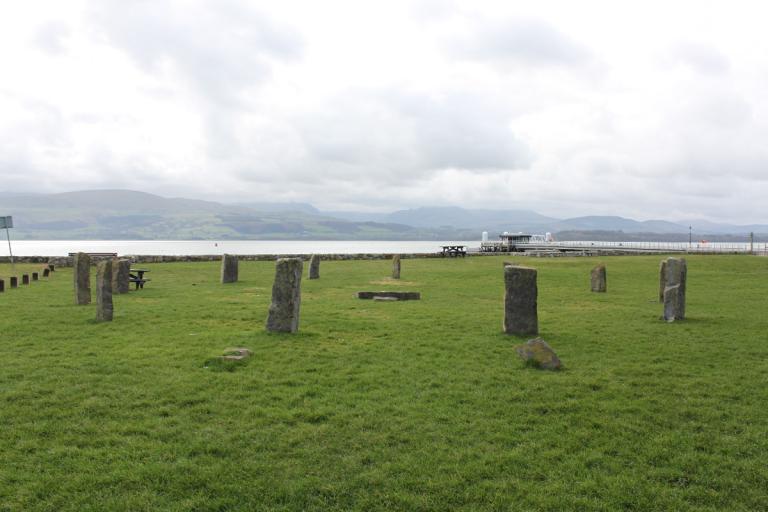Over on Pagan Square, David Oliver Kling has a long essay advocating for full-time paid Pagan clergy. Though as I write this the essay itself has no comments, it’s generated quite a bit of discussion on social media. Most of it falls into two camps: those who say Pagan priests perform valuable services for which they should be compensated, and those whose sense of egalitarianism is threatened by anything resembling ecclesial hierarchy. Both camps have valid points, but I think both are missing the big picture.
Kling’s essay is a rebuttal of John Michael Greer’s Witches & Pagans column titled “A Bad Case of Methodist Envy: Copying Christian Models of Clergy is a Pagan Dead End.” I studied with John Michael Greer for three years and he ordained me as a Gnostic priest. This topic came up in my studies and we discussed it, though not in great detail. While I agree with Kling’s point that we should not reject something just because Christians do it, Greer’s argument that Pagans should take care to avoid mindlessly copying mainline Protestants (because they’re the primary religious model many of us are accustomed to) is a valid concern.
I have a lot of family and friends who are Methodists – they’re good people doing some good work, they just need to get their church on the right side of the marriage equality debate. But like the rest of the mainline Protestant denominations, they’ve been declining numerically since the 1950s with no end in sight. Copying their structures just because they’re familiar is not likely to be a successful strategy.
 This is harder than you might think. Fellow Patheos Pagan blogger Niki Whiting describes the difficulty of reimagining religion in her excellent essay on narrative theology, where she says “I’m still sailing in a monotheistic boat, only with polytheist paint. Paganism, of any kind, ought to be like diving in to the waters and swimming.”
This is harder than you might think. Fellow Patheos Pagan blogger Niki Whiting describes the difficulty of reimagining religion in her excellent essay on narrative theology, where she says “I’m still sailing in a monotheistic boat, only with polytheist paint. Paganism, of any kind, ought to be like diving in to the waters and swimming.”
That’s the situation where we find ourselves. Rather than going point to point like Kling’s essay, I’d rather talk about where we are and where we’re headed.
Voluntary Association
I wish it was unnecessary to say this, but every time this issue comes up someone goes on a rant about how every Pagan is a priest or priestess and clergy only exists to take people’s money and tell them what to do. So let me start by saying that if you’re happy with your back yard coven where everything is done by consensus, then I’m happy for you. If you’re happy being a solitary Druid and you have no need for a grove or an order, I’m happy for you.
But as Brendan Myers made clear in The Earth, The Gods and The Soul, Pagan ideas need Pagan institutions in order to flourish: “Without organizational support, ideas tend to take the form of strongly and/or poetically expressed propositions, and rather little else.” Those of us who are trying to grow that organizational support are doing so on a voluntary basis. If you don’t like it, you don’t have to participate and you can keep right on doing what you’re doing.
Define Priesthood
The only full-time “professional Pagans” I know are the handful of people who manage to make a very modest living with some combination of writing books, teaching classes, providing spiritual direction, and making personal appearances. While some of those folks are priests, I certainly wouldn’t use that mix of activities as a model for priesthood.
Last month I blogged about priesthood in a modern, Pagan, polytheistic setting. I said there are three main things priests do: serve the Gods, act as mediators for the Gods, and serve their communities. It’s been a popular post and if you haven’t read it I think it’s worth your time to do so, but for our purposes today what’s important is that none of those three things require a full-time commitment. Plenty of priests support their non-paying Pagan work with paying secular work.
That’s not the only way or even the best way. Obviously, if I didn’t have a regular job I’d have more time for my priestly work. Obviously, those who work demanding jobs or multiple jobs may not have much time and energy for any priestly work.
But the role of a priest is determined by the call of the Gods and the needs of the community, not by the community’s ability or willingness to support full-time religious professionals.
Who’s Going To Pay?
We can talk all we want about full-time paid Pagan clergy, but at this point all we can do is talk. From our mainline Protestant friends, we know it takes a congregation of about a hundred to be able to afford a full-time minister. Maybe a few less, if other expenses are low and the congregation has several high givers, but maybe a lot more, if the congregation has other priorities or if a significant percentage of its members are very young or very old.
How many local Pagan groups have a hundred members? We can’t copy the clergy model of the Methodists because we don’t have their numbers or their tradition of pledging and we aren’t going to have either any time soon.
It’s worth remembering that Gerald Gardner was living on a British civil service pension when he started promoting Wicca. OBOD founder Ross Nichols worked his entire life as an educator.
Reciprocity, Reciprocity, Reciprocity
The fact that our communities can’t pay for full-time priests doesn’t mean we should never pay our priests. If a priest performs a professional service for you, you should expect to pay for it, the same as you pay your doctor, plumber, or hair stylist. Creating and leading handfastings, child naming ceremonies, funerals and other rites of passage requires work.
If you’re a member of Denton CUUPS or one of my OBOD groups, I’ll be happy to officiate your wedding at no charge. You’re part of my community, you support the same institutions and events I support, and you’ve probably done favors for me over the years. But if you’re a more distant friend or acquaintance we don’t have that pre-established reciprocity. Show me you value my time as much as the time of the florist and the cake decorator.
My priestly friends know I’m not shy about pestering them with questions. Conversations with colleagues is one of the ways we’re advancing the general levels of skill, knowledge and competency within our various priesthoods. But if I ask one of them to do a service for me – divination, ritual work, counseling – then I expect to pay them for their time.
Likewise, I answer almost every e-mail I receive. If someone is looking for suggestions on how to get started in Druidry or how to discern which spiritual path they should follow or how to form a CUUPS group, I’ll do my best to help them find the right direction. But if you want my professional services in one-on-one spiritual direction or coaching or ritual work, expect to compensate me for my time. (I’ve also found that those with no financial investment tend to have significantly less commitment to their studies and practice, but that’s beyond the scope of this post.)
Growing Organic Structures
 I love temples. I’d love to see paid Pagan clergy, even if I never draw a single paycheck from the local Assembly of the Old Gods. But permanent temples and paid clergy represent a huge investment in infrastructure, an investment that virtually no contemporary Pagan group can afford. The storefront Pagan community center model has been a resounding failure. There are many reasons for these failures (some general, some specific to each attempt), but the core problem is that they put means ahead of ends.
I love temples. I’d love to see paid Pagan clergy, even if I never draw a single paycheck from the local Assembly of the Old Gods. But permanent temples and paid clergy represent a huge investment in infrastructure, an investment that virtually no contemporary Pagan group can afford. The storefront Pagan community center model has been a resounding failure. There are many reasons for these failures (some general, some specific to each attempt), but the core problem is that they put means ahead of ends.
The primary goals of a priest are to honor the Gods and to serve the community. Making a living at priestcraft is different goal. It’s a valid goal, but it’s secondary to honoring the Gods and serving the community.
I believe the first sustainable full-time priesthood will emerge from a group that does an outstanding job of honoring the gods and serving the community.
Anyone can set up a shrine in their house. And if what is most important is honoring the Gods, then honoring Them at a household shrine you can afford is far better than overextending yourself for a temple you can’t afford.
When a priesthood grows to a certain point it will have the resources to expand its shrine. “You keep the statues and I’ll keep the wall hangings and someone else will keep the tables and on the high days we’ll rent a city park or a UU church and hold public services.”
We’re starting to see this now on a small scale – priesthoods devoted to specific deities or groups of deities are being formed. They’re developing devotional practices and establishing shrines: the Coru Cathubodua (dedicated to the Morrigan) and the rebuilding of the priesthood of Hermes are two examples. There are others I know of and I’m certain there are many more I know nothing about.
Some of these priesthoods will fail – they’ll misplace their priorities or misread the desires of their patron or never develop a critical mass to survive the death of their founders.
But some will succeed. Some will expand beyond the sworn priests to include lay followers – people with a devotion to the patron deity and Their goals but whose calling does not include priestly duties. Shrines will outgrow living rooms and back yards and find spaces of their own. Some of those dedicated spaces will become temples.
Eventually, the temples will grow to the point they’ll need a full-time priest or two, and their supporters will decide it’s important enough to make the kind of offerings necessary to make it possible.
Will those priests do the kind of officiating, counseling and advocacy work that Protestant ministers do today? Maybe, maybe not. Maybe the polytheistic priesthoods of the Pagan future will split the roles of celebrant and sacrificer. Maybe advocacy and activism will be seen as a lay function rather than a priestly one. Maybe the priests and priestesses of 2114 will resemble Buddhist monks more than Methodist ministers.
I don’t know – I can’t see that far into the future.
What I do know is that paid Pagan clergy is a means, not an end.
The ends, the goals of Pagan priesthood, are to serve the Gods, to mediate for the Gods, and to serve the community. Let’s focus on the ends and let the means sort themselves out.

















